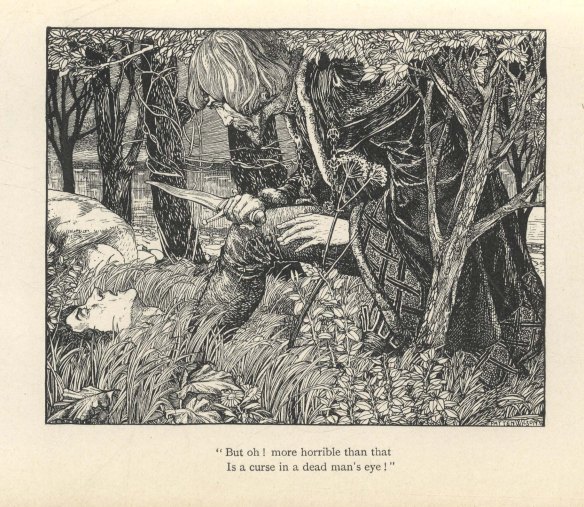“I make it a practice to avoid hating anyone. If someone’s been guilty of despicable actions, especially toward me, I try to forget him. I used to follow a practice—somewhat contrived, I admit—to write the man’s name on a piece of scrap paper, drop it into the lowest drawer of my desk, and say to myself: ‘That finishes the incident, and so far as I’m concerned, that fellow.’ The drawer became over the years a sort of private wastebasket for crumbled-up spite and discarded personalities.”
~ Dwight Eisenhower, At Ease: Stories I Tell to Friends
Joseph Epstein states, “The world’s greatest biography was composed by a depressive, a heavy drinker, an inconstant husband and a neglectful father who suffered at least 17 bouts of gonorrhea.” That biography is filled with quotations like this: “Depend upon it, that if a man talks of his misfortunes, there is something in them that is not disagreeable to him.”
“The Irish are a very fair people—they never speak well of one another.”
And this: “You have to be able to laugh at yourself first, because you might be the problem, not everybody else.”
Once,
work was a major source of friendships. We took our families to company
picnics and invited our colleagues over for dinner. Now, work is a more
transactional place. We go to the office to be efficient, not to form
bonds. We have plenty of productive conversations but fewer meaningful
relationships.
In 1985, about half of Americans said they had a close friend at work; by 2004, this was true for only 30 percent. ...
We may start companies with our friends, but we don’t become friends with our co-workers. "We are not only 'bowling alone,'" Jeffrey Pfeffer, a professor at Stanford, observes, "we are increasingly ‘working alone.’ ”
When Niccolò Machiavelli wrote, five hundred years ago, that "there is nothing more difficult to carry out, nor more doubtful of success, nor more dangerous to handle, than to initiate a new order of things – for the reformer has enemies in all those who profit by the old order, and only lukewarm defenders in all those who would profit by the new order", he wasn't referring specifically to tax reform. Australia's tax system is like swiss cheese NY Times: Our Declining Friendships With Our Co-Workers: Bad For Us, Bad For Our Employers Sydney v NY Young people and the cost of home Sydney v NY traffic Sydney v NY air pollution NSW v NY cigar of polution From Farewells to Welcome to the Tax Prof blogosphere, Tracey M. Roberts(UC-Hastings) and Taxonomer: Tax, Terra, and Taxonomies: Seeing the Forests and the Trees. From her inaugural post:
The goals of this blog are (1) to share research on tax and the environment, (2) to share information about how to make teaching and learning easier, and (3) to promote systems-thinking.
Before the May election Labour promised that it would undertake a review of HMRC if it was returned to power. It wasn’t, of course, but I’m pleased to note that the issue has not gone away. As Economia magazine ( the mouthpiece of the Institute of Chartered Accountants in England and Wales) has reported in the last few days:
Review of HMRC
... I end up thinking that the people who don’t see Ferrante’s genius are those who can’t face her uncomfortable truths: that women’s friendships are as much about hatred as love; that our projections determine our stories as much as does any fact; that we carry our origins, indelibly, to our graves. To imbue fiction with the undiluted energy of life — to make of it not just words upon a page but a visceral force — is the greatest artistic achievement, worth more than any pretty sentences: Ferrante has done this, if not perfectly, then with a rare brilliance... |
Daily Dose of Dust
Jozef Imrich, name worthy of Kafka, has his finger on the pulse of any irony of interest and shares his findings to keep you in-the-know with the savviest trend setters and infomaniacs.
''I want to stay as close to the edge as I can without going over. Out on the edge you see all kinds of things you can't see from the center.''
-Kurt Vonnegut
Powered by His Story: Cold River
Pages
▼

